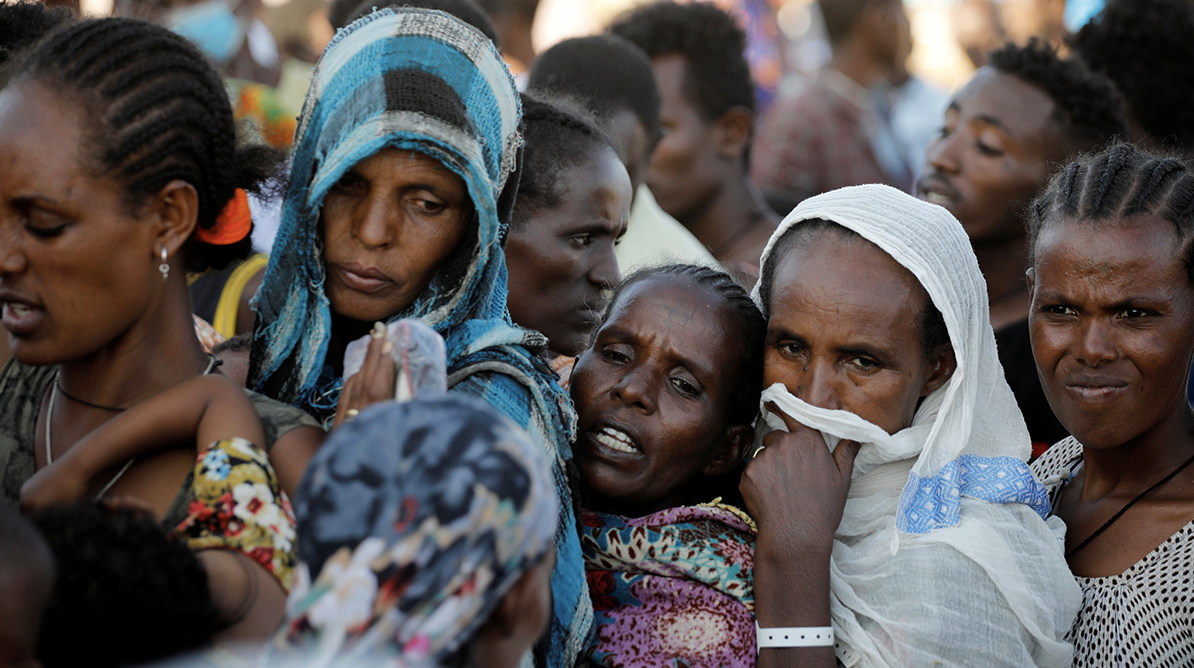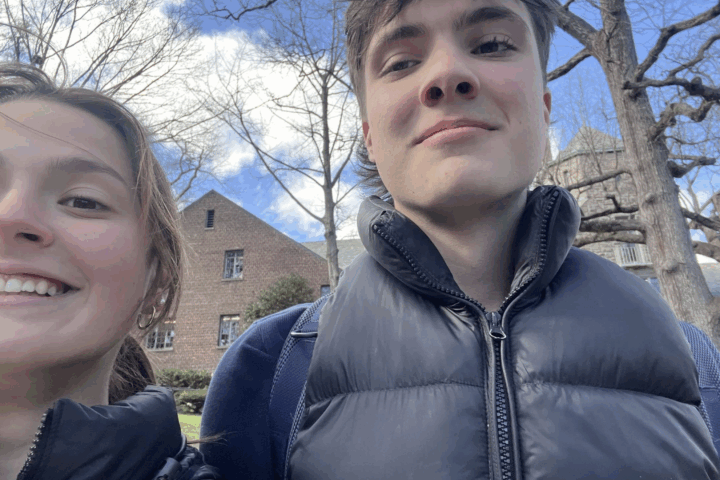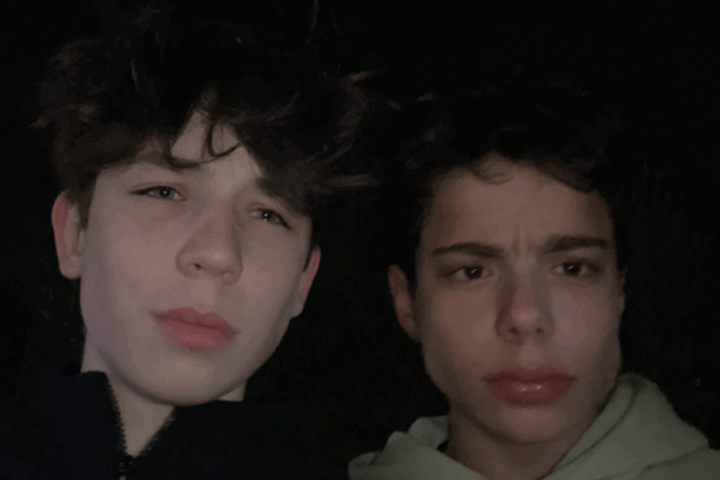On November 4, 2020 Ethiopia’s Prime Minister, Abiy Ahmed, ordered a military offensive in Ethiopia’s northern region of Tigray. Despite promises that the conflict would end quickly, the people of Tigray continue to face extreme violence and crimes against humanity from Eritrean and Ethiopian forces. The initial military offensive has escalated into an ethnic cleansing and a humanitarian disaster with parts of the country in famine; meanwhile Prime Minister Abiy denies reports of humanitarian issues in Tigray and surrounding regions.
Before Prime Minister Abiy came into power in 2018, the Tigray People’s Liberation Front (TPLF) and the Ethiopian government had decade long tensions. TPLF formed in 1975 in northwestern Tigray. In 1991, TPLF, as a component of Ethiopian People’s Revolutionary Democratic Front (EPRDF), seized control of Ethiopia’s capital city Addis Ababa. Both groups successfully overthrew the Derg regime of Ethiopia, and TPLF led Ethiopia for almost three decades within the EPRDF. The country saw prosperity and stability, but concerns about democracy and human rights were regularly raised.
When Abiy entered office he quickly announced that the governing coalition—EPRDF—that the TPLF created was going to be downsized into one Prosperity party, as opposed to the four original parties. Abiy did this while excluding the TPLF, and he ousted many Tigrayan government leaders. With this announcement, fears started in some regions that Ethiopia’s federal system—which protects ethnically defined states—was under threat.
Tensions hit their peak in September 2020 when Tigrayans moved forward with regional parliamentary elections that Abiy had postponed due to Covid-19. The prime minister called the elections illegal and slashed funding to TPLF’s leadership. By October, Ethiopia’s government had cut ties with Tigray.
The Tigray-Ethiopia war began on November 4, 2020, when Abiy accused the TPLF of attacking a federal army base and stealing weapons outside Tigray’s capital of Mekelle. In response, he ordered a military assault that sent national troops from Ahara and soldiers from Eritrea. Three weeks later, government forces overtook Mekelle and established an interim administration loyal to the Ethiopian government; however, it no longer exists.
For the first months after the start of the conflict, Abiy denied that any civilians had been harmed or that he had deployed Eritrean soldiers. In reality, over the past year and a half thousands of people have died. Reports of razed refugee camps, looting, sexual violence, and extrajudical killing started to come in.
Reports of the atrocities committed under Abiy’s leadership have slowly trickled in since the start of the war, but Ethiopia is severely restricting journalists’ access. The news that has come in confirm the horrific sexual violence, massacres, and ethnic cleansings on behalf of the Ethiopian and Eritrean government.
Lena Habtu (VI) is from Tigray. She feels that the joint-force between Abiy and the Eritrea government is suspicious: “He won the Nobel Peace Prize for patching things up with Eritrea. What is the first thing they did as a joint force? Attack Tigray. That’s where it all feels premeditated.” Ethiopia hosted the African Union in February 2022, and yet there was no mention of Tigray: “it all feels constructed, and yet it’s this happy little accident that you don’t need to refer to when you’re holding a continental summit. It’s beyond disappointing. I don’t have words.”
Amnesty International has released a chilling report detailing the sexual violence in Tigray. Soldiers and militias are targeting women for rape, sexual slavery, sexual mutiliation, and utilizing forms of torture with the use of ethnic slurs and death threats. Agnès Callamard, Amnesty International’s Secretary General, stated that “It’s clear that rape and sexual violence have been used as a weapon of war to inflict lasting physical and psychological damage on women and girls in Tigray. Hundreds have been subjected to brutal treatment aimed at degrading and dehumanizing them.”
Amnesty International interviewed sixty three survivors of sexual violence (all of their names were changed for safety), twenty-eight of which identified Eritrean forces as their abusers. Survivors recount witnessing the rapes of other women, which indicates how common the abuse is, and confirms the intention to humiliate women and their ethnic group. Twelve of these women stated that they were raped in front of their family, even their chilren. Nigist is a 35 year old mother who survived the nightmare of Ethiopia’s forces, “Three of them raped me in front of my child. There was an eight-months pregnant lady with us, they raped her too… They gathered like a hyena that saw something to eat… They raped the women and slaughtered the men.”
Nigist’s story is heartbreakingly common, Letay is a 20 year old from Baaker who was gang-raped, “They raped me one after the other… I was four months pregnant; I don’t know if they realized I was pregnant. I don’t know if they realized I was a person.”
Between February and April of 2021, Health facilities in Tigray counted 1,288 cases of gender based violence. The reported cases represent a small number of the violence; many survivors said that they did not get health services after their abuse. Alongside the psychological trauma of sexual violence, women are experiencing health complications which include the following: bleeding, back pain, immobility, fistulas, testing HIV positive, and sleep depreviation.
Media consumption can take an extreme emotional toll on its consumers, especially those from marginalized communities. Lena is trying to learn how to balance a need for knowledge, and a need to breathe. Lena and Adai Jackson (V) held an assembly to inform the Fieldston community about Ethiopia’s atrocities. They struggled to find this balance, “We talk a lot about the circulation of trauma porn on social media and how harmful that can be to consume as a marginalized person, and we tried to balance that with the assembly, because ideally knowledge of atrocities alone would compel someone to action, but a lot of time people want statistics and gory images.”
There are no words to describe the pain of seeing footage of your people suffering. The media selection for the assembly was especially painful for Lena, “It was hard for Adai and I to balance both trigger warnings to the audience, and what media we felt we could see on a big screen. It was emotional when we were preparing for the assembly.”
Among the sexual horros by Eritrean and Ethiopian forces is sexual slavery. Twelver survivors told Amnesty International that they were held captives for weeks and were repeatedly raped. Blen is a 21 year old woman from Bademe who was taken by military forces on November 5, 2020. She says that she, alongside thirty women, was held for forty days, “They raped us and starved us. They were too many who raped us in rounds. We were around 30 women they took… All of us were raped.”
A United States government internal report from 2021 documented that villages in Tigray were deserted with tens of thousands of citizens missing. The report also confirmed the ethnic cleansing of Tigrayans by writing that soldiers, on behalf of the Ethiopian government, are “deliberately and efficiently rendering Western Tigray ethnically homogeneous through the organized use of force and intimidation.”
Amnesty International reported that from November 28 to 29, 2020, at the start of the war, Eritrean forces committed a massacre in Axum. The morning of the 28, TPLF members started an assault against Eritrean soldiers on the mountain of Mai Koho. Around three or four in the afternoon, Eritrean trucks entered the city from the west, and immediately began shooting unarmed civilians in the street who were trying to flee. The attack lasted until the evening and consisted of shootings and house searches for young and adult men for extrajudicial murders. A survivor of the massacre described the extrajudicial killings to Amnesty International, “They lined them up and shot them in the back from behind. Two of them I knew. They’re from my neighbourhood …They asked ‘Where is your gun?’ and they answered ‘We have no guns, we are civilians’… One soldier went to his leader who was Beni-Amir [ethnicity] — he had three scars near each eye — and asked him, ‘shall we kill them or free them?’ and he said, ‘just kill them,’ and they did.”
The hundreds, possibly thousands, of men that were not shot on sight were rounded up and were beaten, abused, and robbed. The Eritrean soldiers threatened to resume killings if the men showed resistance. Another survivor stated that “Eritrean soldiers gathered us … We were maybe 500 people, only men. They put us in a big hole in the ground.”
Routine searches have spread as far as Addis Ababa. Lena says that “Within Addis, my family has been profiled, searched, and nearly everyone has been searched if you’re from Tigray, because your ID marks your ethnicity, or at least the region in which you were born.” Her family has had to flee for the country, and Lena says that they have to “prepare an answer that would not incriminate them and would not reveal their ethnicity,” when answering the question, ‘where were you born?’
A few days prior to November 28’s massacre, on November 19, 2020 Axum was victim to shelling from government forces. Ethiopian and Eritrean forces were firing from the west. A witness said that “There was not any army or forces inside the city at that time but they shelled the people. That was very scary … shelling and gunfire.” Shells hit the streets and civilian buildings causing deaths and injuries. After the shelling and massacre of November 2020, Axum was in a state of disaster. The loyal government soldiers looted everything from the university, to houses, to hotels, to hospitals, to banks, to supermarkets, to grain storage, and more. Hunger and thirst rose among survivors; the electricity was cut off after the attack, and no electricity meant no water pumps and no milling sorghum into flour. People in Axum had to drink from rivers and wells they knew were unsafe.
Abiy promised to heal ethnic divides and create a path for a democratic transition; however, he is using tactics that are associated with authoritarian governments, by shutting down internet and phone services in Tigray, arresting journalists, and suppressing critics. Abiy continues to be criticized for his dangerous comments in which he calls forces in Tigray “weeds” and “cancer.” Abiy also utilizes his Facebook account to encourage violence, “”Our people should march … with any weapon and resources they have to defend, repulse and bury the terrorist TPLF.”
The blackout has been especially difficult for Tigrayans living outside the U.S., who have no knowledge on whether their family is still alive. Lena lived with this pain, “My grandfather was in Tigray in November 2020 and was there until last spring, so we hadn’t heard anything from him for around six months.” During that time, she recounts, “we had no idea whether he was alive, and there are people I know who for the last year and a half still do not know whether to give or to pray, or to hope, because they just haven’t heard anything.”
Meanwhile, the humanitarian disaster is critical. The United Nations (UN) aid chief, Martin Griffiths, declared in September 2021 that Ethiopia had incited a man-made famine and urged the Ethiopian government to grant aid access. A few days later, Ethiopia expelled seven senior UN officials and organizations coordinating relief efforts from the country. The government continues to reject aid blocking accusations.
The UN has reported that there are more than 2.4 million displaced people, and at least 51,200 people have fled to Sudan, which the UN calls the worst mass departure from Ethiopia in decades. Ninety percent of the population—nine million—in Tigray, Ahmara, and Afar, are in need of urgent humanitarian assistance. 2.7 million children, half of which are girls, are currently out of school, and fourteen percent of the child population under five years old across Northern Ethiopia are malnourished. In September 2021, the UN reported that 400,000 people were experiencing famine conditions.
Unfortunately, Lena says that “family members and friends, who I’ve grown up with and love and call my sisters, call what’s happening in Tigray ‘karma.’” Many people are approaching the Tigrayan genocide as justice for the history of the TPLF: “I think that TPLF’s role in EPRDF overall is overstated. They did have a good concentration of the power, I acknowledge that, so I think that there’s a stark difference between civilians and a government.” Not only does Lena have to mourn her home region, she also has “to mourn relationships.”
Despite overwhelming need for critical aid, as of January 2022 no humanitarian aid trucks have been able to enter the Northern region, and the World Food Programme (WFP) says that the supplies are dwindling. The WFP has extreme shortages in their health care centers and hospitals. The only operable route into Tigray is through the Afar region, but this route has not been accessible since December 14, 2021. Michael Dunford, the Regional Director for Eastern Africa of the WFP, said that “We’re now having to choose who goes hungry to prevent another from starving.”
The UN office of Coordination of Humanitarian Affairs (OCHA) had seven supply trucks waiting to enter Tigray, but the office was forced to offload the supplies back into warehouses. A concern for OCHA is that trucks that have made it into Tigray have not come back. They are missing nine-hundred. In order for the needs of Northern Ethiopians to be met, one-hundred trucks need to cross per day, and with the blockade it is not possible.
Pro-government forces in Amhara have been preventing the delivery of supplies as well. The fighting in Tigray has spread into the surrounding regions, which has displaced large groups of people and made routes insecure. It is currently impossible to bring aid from Sudan into northern Tigray. The US Agency for International Development stated that “The government of Ethiopia has created de facto blockades, making communications, banking, and other vital services needed for aid efforts almost non-existent.”
Among the blockades, humanitarian aid organizations are facing financial difficulties. The UN estimates that they need an additional 1.2 billion for their humanitarian response. The WFP is in a similar position; they estimate that 337 million is needed to deliver emergency food assistance. The WFP is likely ro run out of their food and nutrition supplies because of funding. The internet blackout from Abiy is severely affecting communication between the outside world and those in northern Ethiopia, which impacts deliveries.
Ethiopia is attacking its own country, and for many people the war is stirring an identity crisis. Now, Lena struggles on whether or not to claim her Ethiopian ethnicity: an ethnicity she once felt such pride for. “I have always been the number one champion of Ethiopia. On any given day, especially when I was younger,” and being from Tigray was only “one facet of it.” However, she currently does not know what to feel.
Lena recognizes that ethnic tensions in Ethiopia did not arise in Tigray. “I want to honor that Omoro people in Ethiopia— which is another ethnicity—have faced a lot of harm at the hands of the Ethiopian government, and have been wanting to be called Oromo and not Ethiopian.” She did not understand why the Oromo wanted to be separate, but now she does, “There’s a part of me that wants nothing to do with Ethiopia, but then there’s a part of me that’s scared, because how far does it go? Is there no hope for reconciliation?”
Demands for Tigray’s independence from Ethiopia have increased among Tigrayans, but Lena is not convinced that she is ready to say goodbye to Ethiopia. “I understand the emotional urge to do so,” she says, but “I don’t think anyone wants to leave Ethiopia behind. I think it feels like a last resort.”
Throughout assembly planning, Lena told me that she feared she was playing into the ‘Africa is destitute’ stereotype. “I always really pushed hard against the damage centric view of Africa as a whole, [but] I didn’t want them to walk away and be like, ‘well of course there’s a genocide in Africa. Of course they can’t rule and they can’t govern and they can’t take care of one another.’ I really really feared that I was reinforcing that, and I feared that it would be written off as just another thing, which is not to denounce any other genocide or atrocity.”
For a year and a half the world has watched a genocide unfold before their eyes. One can only hope that Ethiopia’s brutality will swiftly come to an end. Until then, please take a look at the links below for more resources and donation organizations.
https://www.paypal.com/donate/?hosted_button_id=ZHY77EDVWT5BS







Thank you so much for writing this woah. This is so well written and succinct and important.